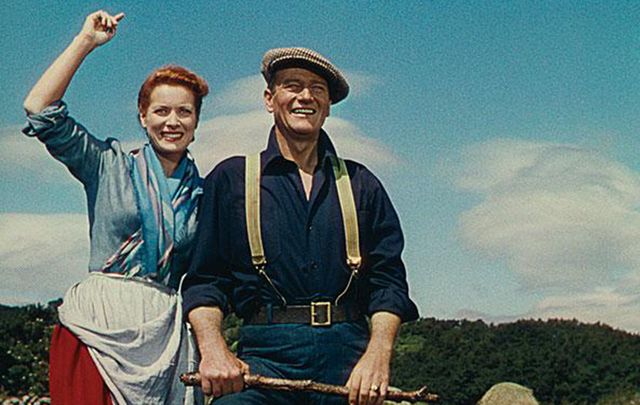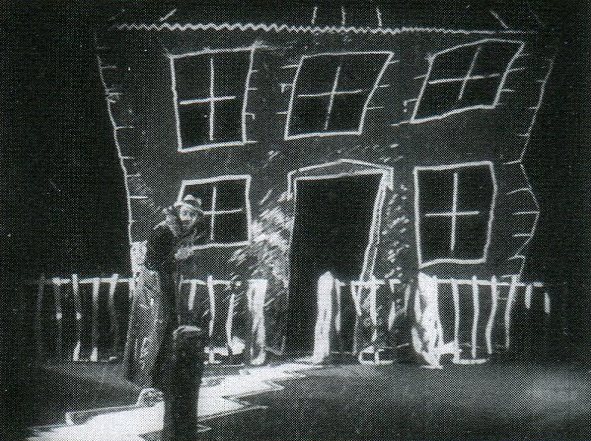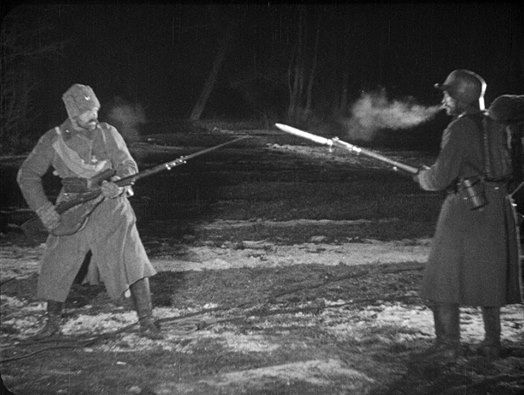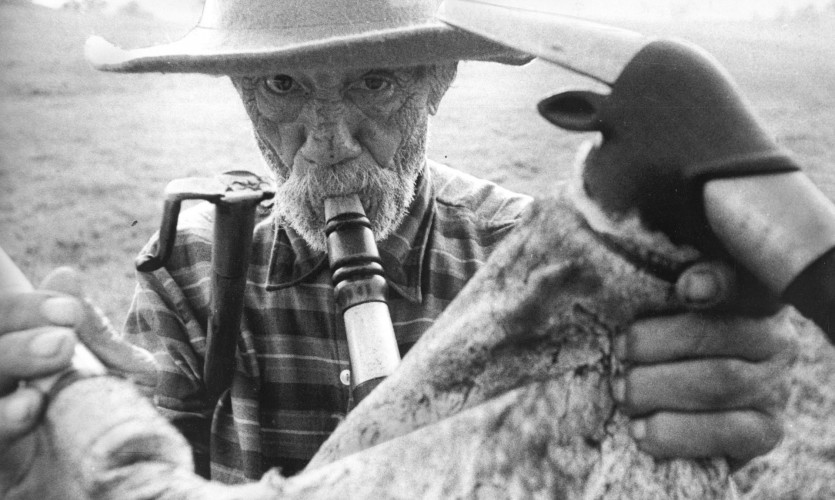 Butcher, Baker, Nightmare Maker (aka Night Warning)
Butcher, Baker, Nightmare Maker (aka Night Warning), 1981
Billy (Jimmy McNichol) is adopted at the age of 4 by his aunt Cheryl (Susan Tyrrell) after his parents are killed in a horrific car accident. Fourteen years later, Billy is a senior in high school and thinking about going away to college with his girlfriend Julie (Julia Duffy). Aunt Cheryl has grown overly (and very unhealthily) attached to Billy, and she becomes emotionally disturbed, eventually killing a repairman who refuses her advances. Billy becomes the main suspect in the killing, pursued by the aggressively homophobic Detective Carlson (Bo Svenson).
I have heard this title before, but had always dismissed it as just another dopey 80s film with a 10/10 title that would probably be a 6/10 experience. Much to my surprise, I borderline loved this movie.
To begin with, Billy is a likable protagonist, as is his girlfriend. He comes across as a pretty normal teenager, but one who is moral when it counts. When Carlson decides that the killing is all part of some gay murder plot (more about this later), Cheryl tells Billy that gay men are all "sick", and Billy stands up for the person he cares about. Billy has only ever been raised by his aunt, and the film does a good job of of showing a kid who believes his life is normal. It doesn't occur to him that most kids aren't awakened by someone purring like a cat and running their hands over your unclothed body. And the film makes a wise choice in giving Billy two other decent characters--girlfriend Julie and his basketball coach (Steve Linden)--to provide a counterbalance to the extreme behavior from Cheryl. It all makes Billy feel more real and makes it easier to root for him.
The film does a nice job of pushing this inappropriate intimacy in several scenes. And, wisely, it's mostly done as something that we the viewer notice, but does not register for the characters. Cheryl is constantly touching, kissing, or holding onto Billy. And while he does not reciprocate, he does not pull away from the attention--it is his normal. In one sequence Billy and Cheryl argue . . . as Billy stands naked in front of the shower. The whole thing lends an uncomfortable air, and it is interesting to see a younger male character on the receiving end of the more exploitative portrayal.
And then there's the detective. This, to me, is the brilliance of the film. Cheryl is unhinged. And from the beginning it isn't hard to see that she is the antagonist of the film . . . until Detective Carlson walks into the frame. Right from the get go, Carlson rubbed me the wrong way. Cheryl claims the repair man tried to rape her, something that Carlson sees through immediately. But it's the way that he dismisses her allegations, and the utterly callous attitude he takes toward the whole thing that is off. Then, when he discovers that the victim was a gay man, he hones in on Billy and crafts a bonkers theory about Billy and the repairman being gay lovers. Carlson might be right that Cheryl is lying, but his main interest doesn't seem to be in finding the truth. He just wants to punish--hurt--everyone who he thinks deserves it. In one scene, which has nothing to do with the main plot, we see Carlson bring in a Mexican suspect. He forces the man to sit on the floor, then points his gun in the man's face. Carlson is a homophobic, racist bully. Some films would have him be the lovable grouch, but this film recognizes him as the danger he really is. It is a frightening performance, and it adds to the danger because the person who in theory would help Billy is so blinded by hatred that he is more likely to do harm than good. (Sidenote: Keep an eye out for a young Bill Paxton as one of Billy's basketball teammates who is more than ready to jump on the gay-bashing bandwagon).
This is my favorite kind of horror film, something along the lines of
Brain Damage, where you have an over the top story (with many MANY elements that, on paper, would sound ridiculous) that still manages to retain a human element. I cared about Billy, Julie, and coach Landers. And the more the film piled on absurdities and improbabilities, the more interested I was in seeing them through the storm.
So, yeah, this is my kind of film. I'm sure someone somewhere has complaints about this movie, but I dug it from opening credits to ending credits. It is over the top and full of ridiculous 80s-style bloodletting with decapitated heads and severed limbs and more blood splatter than you can shake a stick at, but all with a beating human heart at the center. It's blatant condemnation of homophobia--especially within the horror genre--feels ahead of its time. Highly recommended, especially for horror fans.






 Check out my podcast:
Check out my podcast: 





